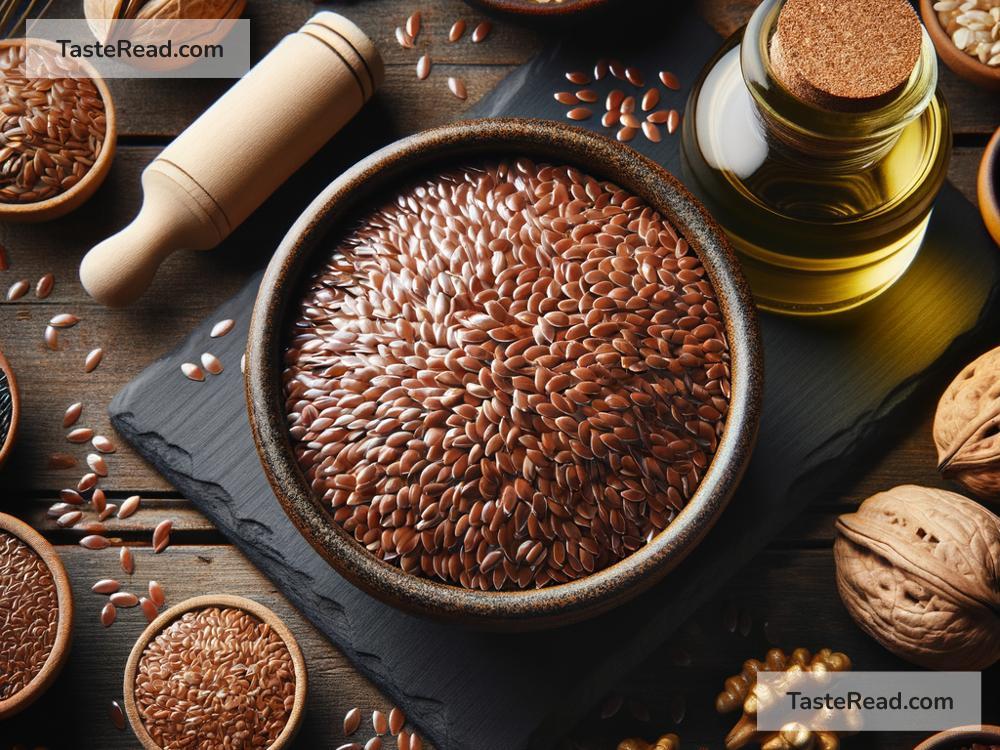Understanding the Role of Lignans in Health
When it comes to eating healthier, many of us hear about nutrients like vitamins, fiber, and protein. But there’s one group of compounds you may not have heard of: lignans. These tiny plant-based molecules are gaining attention in the health world for their potential to promote well-being and even prevent certain chronic diseases. In this article, we’ll take a closer look at what lignans are, how they work in the body, and why they might be an important addition to your diet.
What are Lignans?
Lignans are natural compounds found in plants. They belong to a larger group called phytoestrogens, which are substances that can mimic estrogen, a hormone in the human body. However, lignans don’t act exactly like estrogen. Instead, they interact with the body in a unique way that can influence health.
These compounds are primarily found in seeds (especially flaxseeds), whole grains, vegetables, fruits, and some beverages like tea and coffee. You might not think of these foods as “super-powered,” but they contain lignans that can help protect your body in different ways.
What Happens to Lignans in the Body?
Here’s the interesting part: when you eat foods with lignans, your digestive system doesn’t immediately use them as-is. Instead, the bacteria in your gut break lignans down into substances called “enterolignans.” Once transformed, these enterolignans are absorbed by the body and start to work their magic.
Because lignans are phytoestrogens, they can interact with estrogen receptors in the body. This interaction is thought to play a big role in some of their health benefits. Additionally, lignans act as antioxidants, helping to fight harmful molecules that cause damage to our cells.
Health Benefits of Lignans
Scientists and nutritionists are studying lignans because they may support health in several ways. While research is still ongoing, here’s what we know so far:
1. Hormone Balance
Lignans may help balance hormone levels in the body. For example, they might reduce the impact of excess estrogen. This is why lignans are sometimes mentioned in connection with women’s health, especially for reducing symptoms of menopause or supporting hormone-related conditions.
2. Heart Health
Studies suggest that lignans might help lower the risk of cardiovascular problems. How? They’ve been linked to improved cholesterol levels, lowered blood pressure, and reduced inflammation—all of which support a healthier heart.
3. Cancer Prevention
Lignans are being studied for their potential to protect against certain types of cancer, especially breast, prostate, and colon cancer. Their ability to mimic estrogen in a mild way might help balance hormone activity in the body, which could lower the risk of hormone-related cancers. Additionally, their antioxidant properties may help reduce cell damage, another factor associated with cancer prevention.
4. Gut Health
Because lignans are transformed by gut bacteria, they may support a healthy gut microbiome. A balanced gut microbiome is linked to better digestion, stronger immunity, and overall health.
5. Bone Health
Some studies show that lignans might also help maintain bone health, particularly as we age. Their subtle hormone-like effects could potentially support stronger bones and reduce the risk of osteoporosis.
Where Can You Find Lignans?
Incorporating lignans into your diet is simple because they’re found in everyday foods. Here are some of the best sources:
- Flaxseeds: These are by far the richest source of lignans. Just one tablespoon of ground flaxseeds can provide a significant dose.
- Sesame Seeds: Another seed packed with lignans.
- Whole Grains: Foods like rye, barley, and oats contain lignans.
- Fruits: Berries like strawberries and cranberries have small amounts of lignans.
- Vegetables: Broccoli, kale, and carrots all contribute a little lignan to your diet.
- Teas and Coffee: These beverages contain plant compounds, including lignans.
To get the most benefit, try to eat these foods regularly and in their natural forms. For example, ground flaxseeds are more effective than whole flaxseeds because they’re easier for your body to digest.
Are There Any Risks?
Generally, lignans are safe and healthy to consume. However, like any nutrient, moderation is key. Eating extremely high amounts of lignans hasn’t been proven to cause harm, but it’s always best to maintain a balanced diet.
Also, if you’re taking medications for hormone-related conditions or if you have concerns about how lignans might affect you, it’s a good idea to talk to your doctor. Everyone’s body is different, and personal health factors may play a role in how lignans interact with your system.
The Bottom Line
Lignans are tiny but mighty plant compounds that may support heart health, hormone balance, cancer prevention, and more. Adding lignan-rich foods like flaxseeds, whole grains, and vegetables to your daily diet is a simple way to get their benefits.
As research continues, we’re likely to learn even more about these fascinating nutrients and how they can help us stay healthy. For now, it’s clear that lignans are yet another reminder that eating plant-based foods isn’t just delicious—it’s great for your health too! So the next time you sprinkle flaxseeds on your smoothie or salad, know that you’re giving your body a boost of goodness.


